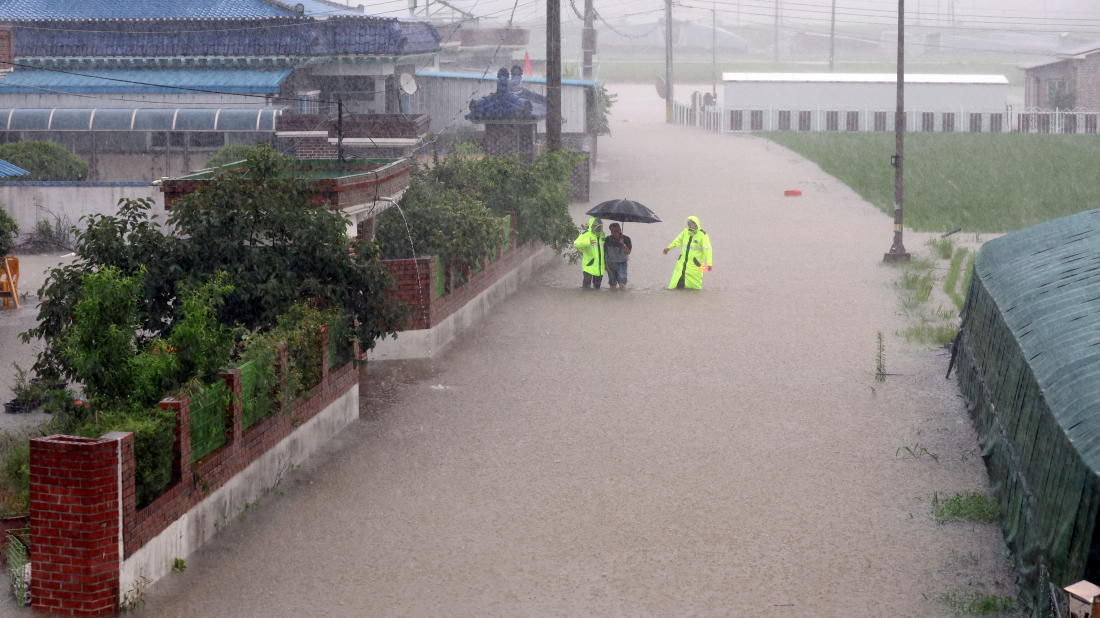AnewZ Morning Brief - 4 August, 2025
Start your day informed with AnewZ Morning Brief: here are the top news stories for the 4th of August, covering the latest developments you need to kn...

More than 2,500 people have had to leave their homes in southern South Korean after torrential rains swept across the country during Sunday night, inundating houses and roads in six major cities and provinces. Emergency shelters filled as families sought refuge.
Muan county bore the brunt of the storm, recording nearly 290 millimetres of rain from midnight Sunday to Monday morning. The sudden deluge turned streets into rivers and left one man in his 60s dead in a local stream. Authorities are still investigating if the fatality is directly linked to the flooding.
As the waters rose, emergency shelters opened across the southern provinces, giving thousands of residents a safe place to wait out the storm. The Central Disaster and Safety Countermeasure Headquarters coordinated the response, providing regular updates through Yonhap News Agency.
The threat, however, is far from over according to Meteorologists who warn that more rain is on the way, with particularly heavy downpours forecast for South Gyeongsang and surrounding areas.
While the rainfall has brought some respite from recent heatwaves—lifting temperature alerts in several regions—the risk of further flooding remains high. Temperatures are expected to climb back to 29–34 degrees Celsius.
Faced with the growing threat of extreme weather, the government has poured resources into upgrading flood response systems, early warning networks, and resilient infrastructure. Yet experts caution that storms like these may soon become the rule, not the exception.
The world’s biggest dance music festival faces an unexpected setback as a fire destroys its main stage, prompting a last-minute response from organisers determined to keep the party alive in Boom, Belgium.
According to the German Research Centre for Geosciences (GFZ), a magnitude 5.7 earthquake struck the Oaxaca region of Mexico on Saturday.
Australian researchers have created a groundbreaking “biological AI” platform that could revolutionise drug discovery by rapidly evolving molecules within mammalian cells.
A series of earthquakes have struck Guatemala on Tuesday afternoon, leading authorities to advise residents to evacuate from buildings as a precaution against possible aftershocks.
China and the Association of Southeast Asian Nations will send an upgraded ‘version 3.0’ free-trade agreement to their heads of government for approval in October, Chinese Foreign Minister Wang Yi said on Saturday after regional talks in Kuala Lumpur.
It’s vast, it’s unstable, and it holds enough ice to reshape the world’s coastlines. Thwaites Glacier, ominously nicknamed the “Doomsday Glacier”, has become one of the most closely watched pieces of ice on the planet.
Several towns in eastern Australia were blanketed with their thickest snowfall in nearly 40 years as severe weather swept through over the weekend.
U.S. President Donald Trump has officially cancelled plans to develop new offshore wind projects in federal waters, reinforcing his administration’s pivot from renewable energy to fossil fuels.
European forests are absorbing significantly less carbon dioxide than a decade ago, putting the European Union’s ambitious climate goals in jeopardy, scientists from the EU’s Joint Research Centre (JRC) warned on Wednesday.
The United Nations' climate bureau have concerns that sky-high accommodation prices for this year's COP30 climate summit in Brazil could price poorer countries out of the negotiations, according to diplomats and a document seen by Reuters.
You can download the AnewZ application from Play Store and the App Store.

What is your opinion on this topic?
Leave the first comment